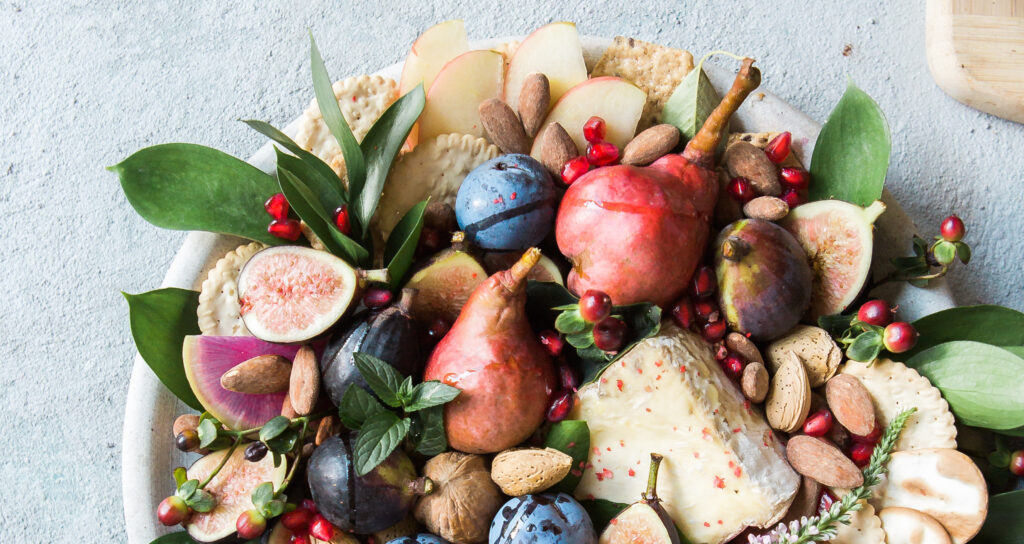Mindful Eating: A Chinese Medicine Perspective
Oct 13, 2021

When I ask my patients about their diet, they often reply, “It’s pretty healthy!”
But… what is healthy eating?
In Traditional Chinese Medicine (TCM), we understand food differently than in western medicine. We don’t usually talk about nutrients, vitamins, or minerals. Instead, we focus on a food’s thermal nature (cold, hot, warm, cool, neutral), its flavours (pungent, sweet, salty, sour, bitter), or its effect on the body (tonifies blood, tonifies Yang, nourishes Yin, moves blood, removes toxins, etc.).
Foods aren’t good or bad; they have a specific quality.
As a teacher of Traditional Dietary Nutrition, my students often tell me that their understanding of nutrition changes as they adopt the TCM way of thinking. In TCM, foods that we think of as healthy can potentially be harmful. For example, some may find that eating a raw diet can help reduce inflammation in the body, while others may find that raw foods are hard to digest or disrupt their hormonal balance, among other issues.
It can be a long journey to learn how to listen to the nutritional needs of your body, especially if you’re trying to figure it out by yourself. A practitioner of TCM can help you find the best balance for your body.
A Guide to Mindful Eating — the Traditional Chinese Medicine Way
If you have digestive problems … try warming foods. The Spleen organ rules digestion. If you have loose stools, bloating or fatigue after eating, or low appetite, you need to eat more warming foods. You should also avoid cold or raw foods, especially if you have a tendency to feel cold. Everything cold will weaken your digestive system. This means cutting out smoothies, especially in the winter! Instead, warm your body with oatmeal, soups, or stews. You’ll find that you feel much better after eating a warm meal, and your body will thank you for the care.
If you plan to get pregnant … nourish yourself first. It’s important to prepare for pregnancy, so that both parents are strong enough to transmit good “essence” to the future baby. This means building your Qi and your blood. You need strong digestion to be able to transform food into energy for you and the baby.
If you experience strong emotions … avoid spicy foods. Most spices have a pungent quality. In TCM, “pungent” means “up and out:” it brings energy to the head. For conditions like mania, insomnia, or anger, the goal of TCM is to bring that energy down, to ground the body and calm the mind. This means avoiding things like hot sauce, cayenne pepper, cumin, ginger, peppermint, and the spice cabinet in general. This also means that when you’re feeling down or low in energy, a chai tea or spicy meal could give you an energy boost. Next time, try that instead of ice cream!
Cover photo credit: Brooke Lark/Unsplash
 Roseline Lambert, R.Ac. offers acupuncture, moxibustion, and cupping for general health concerns, including headaches and migraines, stress relief, anxiety, and PTSD. She specializes in a highly unique Korean 4-needle acupuncture technique based on the Five Elements (Earth, Metal, Water, Wood, & Fire).
Roseline Lambert, R.Ac. offers acupuncture, moxibustion, and cupping for general health concerns, including headaches and migraines, stress relief, anxiety, and PTSD. She specializes in a highly unique Korean 4-needle acupuncture technique based on the Five Elements (Earth, Metal, Water, Wood, & Fire).

 Roseline Lambert, R.Ac. offers acupuncture, moxibustion, and cupping for general health concerns, including headaches and migraines, stress relief, anxiety, and PTSD. She specializes in a highly unique Korean 4-needle acupuncture technique based on the Five Elements (Earth, Metal, Water, Wood, & Fire).
Roseline Lambert, R.Ac. offers acupuncture, moxibustion, and cupping for general health concerns, including headaches and migraines, stress relief, anxiety, and PTSD. She specializes in a highly unique Korean 4-needle acupuncture technique based on the Five Elements (Earth, Metal, Water, Wood, & Fire).